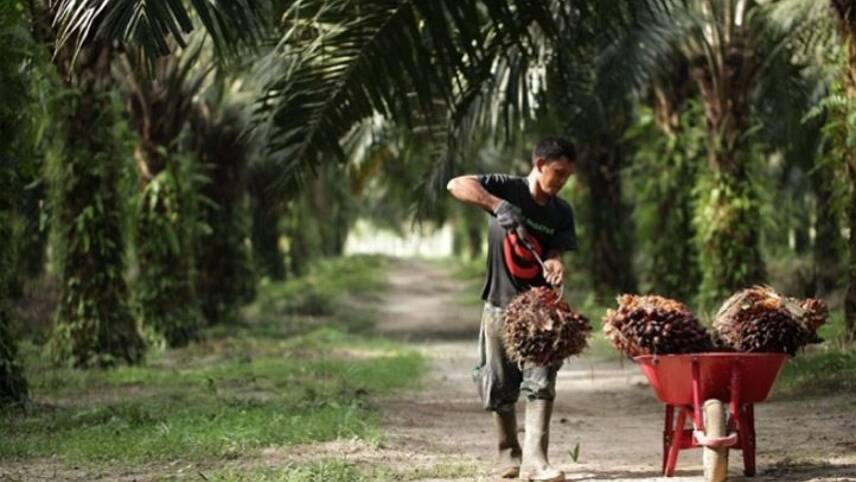Register for free and continue reading
Join our growing army of changemakers and get unlimited access to our premium content

Each of the companies assessed are exposed to one or more so-called 'Forest Risk Commodities’
That is according to CDP, which today (18 November) published a report analysing the deforestation risks which 22 of the world’s largest consumer goods manufacturers and retailers are facing.
Called ‘No Wood for the Trees’, the report analyses each firm’s exposure to both physical and transition risks associated with deforestation in supply chains. It additionally assesses the strengths and weaknesses of each company’s climate and governance strategy and ranks companies’ ability to benefit from the transition to a deforestation-free supply chain.
Of the 22 companies assessed, CDP found that just one-third have deployed comprehensive management practices around forestry and land use. In order to the body to classify such governance as “comprehensive”, it must, among other factors, account for soil management and include regenerative agriculture.
Moreover, CDP found that 19 of the corporates listed have not yet received sustainability certification for 100% of the palm oil they source, rising to 21 for timber. Palm oil appears in more than half of all fast-moving consumer goods sold in the UK and the commodity is believed to be the largest driver of deforestation in Indonesia and Malaysia.
These trends, CDP claims in the report, means the Board of the Consumer Goods Forum’s industry-wide target to deliver ‘net-zero’ deforestation by 2020 will not be met. CDP claims that several of the brands named in the report have already drawn the same conclusion.
Firms named by the as the worst laggards include Burger King owner RBI; Tyson Foods; Kraft Heinz; ConAgra; The Estée Lauder Companies and Yum! Brands, which owns Pizza Hut, Taco Bell and KFC.
On the flipside, Danone, Nestle, L’Oreal, Unilever, Kellogg and Mars respectively took the top six spots in CDP’s rankings.
“Leading global consumer goods companies need to look closer at all the hidden risks they are running across their supply chains and scratch below the surface,” CDP’s head of investor research Carole Ferguson said.
“As we approach our planetary boundaries, much more needs to be done upstream. These companies are well placed in the value chain to act and fast. That starts with full and deep transparency of supply chains for companies to hold producers to account and provide consumers with full sourcing and product visibility.”
Corporate response
edie has contacted the companies ranked as the bottom six in the new CDP report for comment.
Responding to CDP’s findings, a spokesperson for Tyson Foods said: “We are committed to sustainably feeding the world. Accordingly, we recently announced a partnership with Proforest to help us conduct a deforestation risk assessment across our global supply chain, focusing on commodities such as cattle, palm oil, soy, timber, pulp and paper. The results from the assessment will inform the development of a Tyson Foods Forest Protection Policy in 2020.
“In 2017, Tyson Foods partnered with an environmental non-government organization to conduct a sustainable sourcing risk assessment, which classified the company’s deforestation risk as minimal to low. Since then, we have expanded our international presence from two countries to nine, with the acquisition of Keystone Foods and additional poultry businesses in Thailand and Europe. Given the company’s expanded footprint, the supply chain will be reassessed to identify and classify potential risks.”
The Estée Lauder Companies’ senior vice president of global corporate citizenship, Nancy Mahon, said the company is “actively working to address issues that may exist within complex supply chains, such as deforestation”.
“As part of this important work, we collaborate openly with the CDP to identify risk areas and expedite the path to a solution,” Mahon said. “Our goal is that by 2025, we will have identified sensitive ingredient supply chains and developed robust biodiversity and social action plans for them. Additionally, at least 90% of our palm-based ingredients will be certified sustainable from RSPO physical supply chains by 2025, with 50% palm-based ingredients certified sustainable from RSPO physical supply chains by 2020 (formulas manufactured by Third-Party Manufacturers are currently excluded)…We are committed to this work, and are confident in our capacity to meet our goals.”
Mahon emphasised the fact that the company recently developed biodiversity and social action plans for priority sensitive ingredient supply chains and its ongoing collaborateive work through RPSO and Action for Sustainable Derivatives (ASD).
‘No Wood for the Trees’ builds on CDP’s recent ‘Palm Book’ report, which tracked the progress of 543 firms on the elimination of deforestation risks from palm oil supply chains. It found that 80% of companies assessed will miss their 20202 deforestation targets.
Elsewhere in its research into consumer goods companies, CDP has been analysing the readiness of the sector for the global transition to a low-carbon economy. It found that, in the 12 months leading up to February 2019, companies such as Kraft Heinz and P&G were prioritising investments into removing plastics packaging over those in low-carbon technologies. However, given the recent emphasis on net-zero carbon in the UK and further afield, the landscape in this area may have changed since this research was conducted.
Sarah George


Please login or Register to leave a comment.